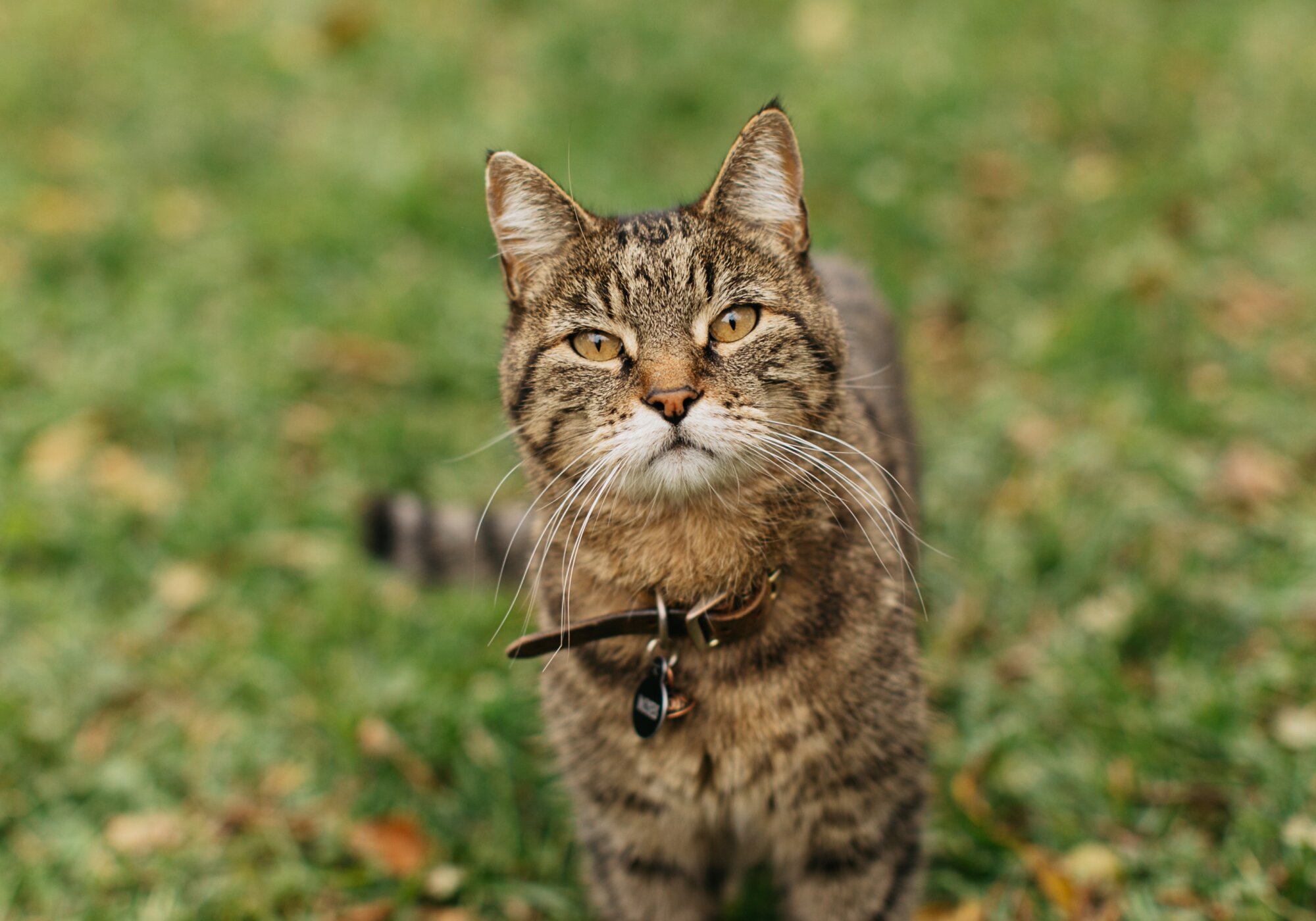Visiting the doctor for a yearly physical is a common practice for humans. These appointments are great for monitoring subtle changes in your health to prevent disease and stay on top of your wellness.
Pets can also benefit from a similar screening at their vet to help kittens grow into strong, healthy cats. After all, as a pet parent, you are responsible for giving your cats the best life possible.
Checkups may seem unnecessary and expensive. But, skipping a yearly wellness appointment could be detrimental to your cat's health.
In this article, we'll cover everything you need to know about cat checkups including:
- Why are checkups important
- What to expect in a cat checkup
- How much is a cat examination
- How often does your cat need an exam
- The ultimate examination checklist for cats
Why are checkups important
Your cat's health is important to their wellness. From detecting signs of disease to keeping up on annual shots for cats, you can't go it alone.
Cats are particularly good at hiding their health issues. So you may not notice your pet is in pain before it transpires into something more serious.
That's why veterinary care should be a necessary part of your pet care routine. One of the best ways to support your cat's health is through annual vet checkups.
Another way to support your cat's health is through a wellness subscription. Choosing the right products for your cat may seem tricky, but PetFriendly's subscription box for cats makes pet care simple.
Regular veterinarian checkups may seem costly and scary. But, they are often the difference between a simple test and hundreds of dollars in vet bills for emergency surgery.
You may not think you need to take your cat to the vet every year. Especially if they aren't currently sick or injured, but checkups are all about prevention.
What is included in a cat examination
You may not know what happens at a cat checkup and every veterinarian has their own protocol for routine exams. But in most cases, there are a few key parts that most vets will walk you through.

Here are a few things you and your cat may encounter at your annual vet checkup:
Before
Your veterinarian will start by looking through your cat's chart and health history. If you've taken your cat to an examination before, your vet will likely have notes on hand. But if not, here are a few things you can come prepared with to discuss:
- Their general age, weight, and breed
- Any changes in their health or behavior
- Anything new or abnormal found in cat litter
- Their diet, eating habits, and food allergies
- Their lifestyle and environment
- Current medications or vaccinations
- Recent injuries or surgeries
During
After reviewing your cat's health history and any other concerns you've surfaced, your veterinarian will perform a physical examination. This helps them detect any issues that need further testing or examination.
From head to toe, your vet will scan your cat's:
Eyes, Ears, and nose
Common ear, nose, and eye concerns are usually a result of irritation or related allergies. Some symptoms your veterinarian (DVM) may check for include:
- Cloudy vision
- Dilated pupils
- Ear mites
- Foreign objects in your cat's ear canal
- Abnormal growths
- General irritation
- Bleeding
- Swelling
Mouth, teeth, and gums
Dental health in cats is important — unfortunately, cats aren't efficient teeth cleaners. Bad teeth are usually a sign of an underlying issue. Your vet may check for inflammation, blood around the gums, and excess tartar buildup around their teeth or gum line.
Neck and armpits
These are common areas for parasites, lumps, and bumps to live. Your vet may do a physical scan of this area and feel around for any abnormalities. If a lump seems cancerous, they may need extra testing or blood work.
Skin and coat
Your cat's fur is a common location for parasites like cat fleas, cat lice, and ticks to live. And irritated or flaky skin is a common symptom of infectious diseases like cat scratch or Lyme. Your vet may look for irritation, redness, and blood which could be signs of illness in your pet.
Hips, legs, and tail
Your cat's hips, legs, and tail are usually good places to check for potential joint health issues. Your vet may put a little bit of pressure on certain spots to check for pain or inflammation.
Vital signs
After scanning your cat's body, the vet will check their vital signs. Heart rate, blood pressure, and temperature are important factors in your cat's wellness. And listening to the heart and lungs is a great way to test for these diseases.
Listening to your cat's heartbeat and lungs can help your vet detect bigger issues. Strained or irregular breathing can suggest internal bleeding, infection, and trauma. Anemia and high blood oxygen levels can suggest other related medical issues like kidney, liver, or heart disease.
After
Depending on what your vet finds during the exam, they may suggest further testing. This can include collecting a urine sample, x-ray tests, or blood work.
Vaccinations and Testing
Collecting a urine or stool sample from your cat's litter box is common practice in check-ups. Especially because urinary tract infections and kidney disease are common in cats.
Your vet may also suggest updating annual cat vaccines. Certain core vaccines are great for preventing infection and internal diseases.
The most common annual shots for cats include:
- Distemper (Feline panleukopenia)
- Feline calicivirus disease
- Feline herpesvirus type I
- Feline chlamydiosis
- Feline leukemia disease
- Feline infectious peritonitis
- Feline viral rhinotracheitis
- Rabies
- Bordetella
Once the check is complete, your vet will determine the next steps. This can include extra follow-up visits or scheduling another visit in a year. Some feline practitioners may want follow-ups every 4 to 16 weeks depending on years of age or their vaccine schedules.
How much is a cat check-up
A normal examination is typically inexpensive. Especially if you feed your cat a complete and balanced diet and visit your vet regularly.
The average cost of a cat checkup ranges from $50 to $250 depending on a few factors. You can expect the price to fluctuate based on:
- Your pet's health, weight, and body condition
- Their age (kittens vs. senior cats)
- If a DVM performs the checkup
But, your veterinarian bill can start to creep up if you add any other medical tests or screenings. Some examples of extra visits can include:
- Dental cleanings
- Urine sample for kidney disease
- Blood sample for heartworm
- Fecal exams for bacterial infection or worms
- Allergy tests
- Geriatric screenings (for senior cats)
- Spay and neuter
- Vaccinations
- Treatments
- Surgeries
- Hospital visits
How often do cats need vet check-ups
Early detection is the best pet care you can provide to your cat. Regular testing at your veterinarian can make a big difference in your cat's wellness.
If committing your cat to a yearly checkup is all that you can do, once a year is better than never. Once-a-year veterinary visits are recommended, but if new medical issues appear you might want to check things out sooner.
Cat check-up checklist
Cats are magical creatures with unique physical needs and lifestyle preferences. But physically transporting your cat to the veterinarian can be very difficult. To make your next vet visit seamless, there are some precautions you can take.

Prepare for your cat's next wellness examination by reviewing this complete checklist.
Diet
- Cat food
- Cat treats and snacks
- Food allergies
- Cat supplements
Body Condition
- Weight
- Muscle loss
- Limping
- Injury
- Wounds
General Health
- Age (if known)
- Breed (if known)
- Background (rescued vs. bred)
- Known diseases or health concerns
- Litter box health (urine or fecal concerns)
Lifestyle
- Activity levels
- Environment (indoor cats vs. outdoor cats)
- Other pets
- Favorite cat toys
- Habits
- Behaviors
Requirements for Testing
- Stool sample
- Urine sample
- Cat litter sample
- If your cat needs to fast
Being a pet parent is a difficult feat, especially on your own. But with good care and regular trips to the veterinarian, your cat will live a happy, healthy life.



